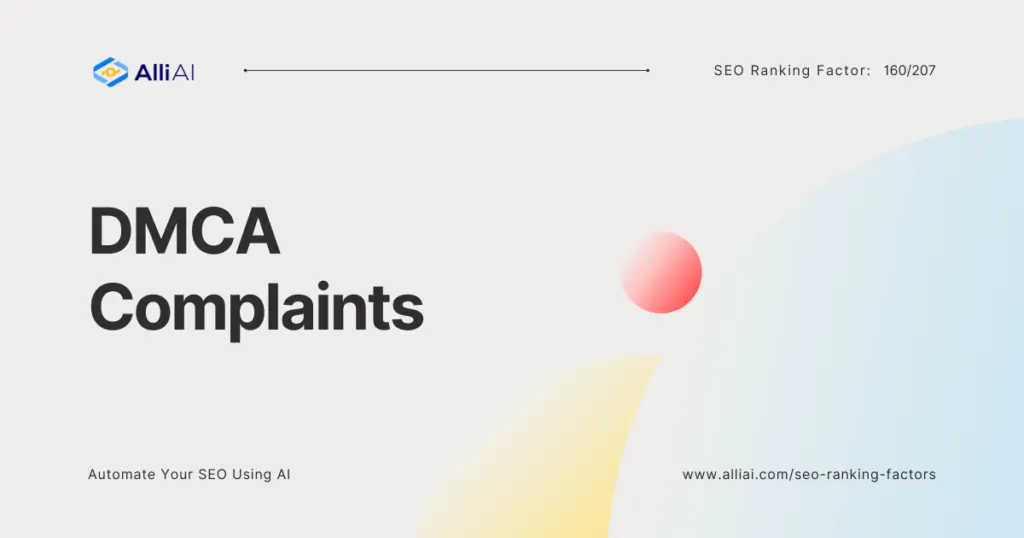What is DMCA Complaints?
The Digital Millennium Copyright Act (DMCA) is a United States copyright law that addresses the rights of content creators and the distribution of their intellectual property. A DMCA Complaint arises when a content owner claims that their copyright material is being used without permission on a website. This leads to a formal complaint filed against the website, which can result in the removal of the infringing content or even the de-indexing of the website from search engines.
Imagine you’ve opened a boutique selling unique designs and someone starts selling exact replicas without your consent. You’d take action to protect your creations, right? Filing a DMCA Complaint is analogous to this scenario but in the digital world, where your original content is protected from unauthorized use online.
Why is DMCA Complaints important in SEO?
DMCA Complaints play a pivotal role in SEO for several reasons. Firstly, they influence the trustworthiness and credibility of a website. Search engines aim to provide users with high-quality and original content. If a website is frequently involved in copyright infringement issues, it might be considered less reliable and authoritative, negatively affecting its ranking. Secondly, repeated violations can lead to harsher penalties from search engines, including the de-indexing of the site, which would drastically reduce its visibility.
How DMCA Complaints affect SEO?
The impact of DMCA Complaints on SEO can be quite substantial. When a complaint is filed and validated, the infringing content is removed, which might directly impact the website’s content quality and user experience. Moreover, if a website accumulates multiple complaints, it’s seen as a repeat offender, leading search engines to demote it in search rankings or even remove it from search results entirely.
According to a study by Moz, websites that have had DMCA complaints filed against them see a significant drop in their SERP rankings. Furthermore, Google’s Transparency Report reveals that millions of URLs are requested to be removed yearly due to copyright infringements, showcasing the pervasiveness of this issue and its potential impact on SEO. [Source: Google Transparency Report](https://transparencyreport.google.com/copyright/owners)
FAQ
Can DMCA Complaints be false or misused?
Yes, false or misused DMCA Complaints can occur, sometimes as a result of misunderstandings or as an intentional attempt to harm a competitor’s ranking. It’s important to legally contest unjust claims through the proper channels provided by search engines.
How can I prevent DMCA Complaints?
The best way to avoid DMCA Complaints is by using only original content or content you have rights to use on your website. Additionally, always give proper credit and seek permission when using someone else’s work.
What should I do if a DMCA Complaint is filed against my website?
If a DMCA Complaint is filed against your website, it’s crucial to address it immediately. Review the complaint to verify its validity, then remove the infringing content if the claim is legitimate. Lastly, submit a counter-notification if you believe the complaint was a mistake or unjustified.
Conclusion
In the realm of SEO, DMCA Complaints are a critical factor that can significantly impact your website’s ranking and visibility on search engines. Acknowledging the importance of copyright laws and understanding the implications of DMCA Complaints are crucial steps in maintaining a positive online presence. By fostering a website environment that respects copyright laws and prioritizes original content, businesses and content creators can not only avoid the pitfalls of DMCA complaints but also enhance their SEO performance. The digital world thrives on authenticity and trust, and by navigating it wisely, you can ensure your website stands strong in search engine rankings.
Remember, the goal isn’t just to avoid negative impacts like DMCA Complaints but to build a credible, authoritative website that search engines and users alike will trust and prefer.






